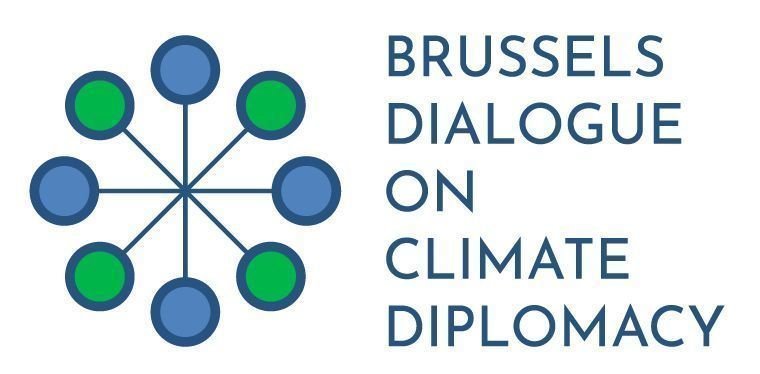Mainstreaming Climate Change Issues

The Brussels Dialogue on Climate Diplomacy (BDCD) is an informal network for the exchange of information and to promote cooperation among European institutions, international organisations and think tanks active in the nexus between climate change and international, national, human and environmental security.
The first meeting was organised by the Institute for Environmental Security (IES) at the European Climate Foundation (ECF) in Brussels on 31 March 2016. The focus was ona presentation from the Global Strategic Communications Council (GSCC) highlighting much hope that the Paris Agreement finalised at COP21 in December 2015 had changed the rules of engagement on climate change which should lead to a new kind of multilateralism and real progress in reducing the threats posed by climate change. Participants recognised the importance of communicating the grand sum of many small decisions - from this point onward. Every new decision taken on infrastructure, security, energy, etc. hasan impact on climate and needs to be seen as such.
The year 2016 was then seen as the year of 'Mainstreaming' climate change issues. The UNFCCC, through the binding reporting requirements of COP21 has developed a rhythm which could be continued and which would be relevant in the wider context of issues such as famine, migration and terrorism.
Awareness Building
Participants reinforced the belief that expert spokespersons from the security community can add credibility in bringing climate issues to the public. They also recognised the important role the military and security sector can play in risk analysis, responding to natural disasters and in reducing thier own environmental impact.
The then forthcoming G7 report "A New Climate for Peace"was highlighted and participants also listed several other suggestions for practical action by governments and international organisations to better analyse environmental risks and increase prepardness as well as to improve awareness building and public communications on these issues
Core Group
At the second meeting held at NATO HQ on 11 May 2017 participants highlighted the activities of their organisations and brainstormed together on how to increase public awareness and resolve within their institutions regarding the security threats posed by climate change especially in the light of uncertainty about how the U.S. will proceed regarding the Paris Agreement. The participants agreed to form a "core group" for the Brussels Dialogue which would meet 2 to 3 times per year.
The group also agreed on the importance of broadening the information exchange to also involve civil society engaged in awareness raising and policy research groups - as well as on the value of linking the Brussels Dialogue with meetings of The Hague Roundtable on Climate and Security and with the annual conferences of the Planetary Security Initiative.
The 2017 Conference and Beyound
The third meeting was held on 28 June 2017 at the ACP Secretariat where participants began preparations for the first BDCD international conference which was held there on 20 November and involving a wider constituency of other organisations, governments, NGOs, think-tanks, enterprises and the media.
The Core Group held its 4th meeting at the UNEP Brussels Liaison Office on 18 September 2017 where there was a presentation on “Planetary Security Challenges - Where do we go together from here?” by Alexander Verbeek, Founder, Institute for Planetary Security / Associate, Stockholm Environment Institute / Former Strategic Policy Advisor, Global Issues, Ministry of Foreign Affairs, The Netherlands.
The first BDCD international conference was held at the ACP Secretariat on 20 November 2017. Entitled "Enhancing Climate Diplomacy in a Changing Political Environment: New Opportunities for Cooperation among International Organisations on Climatic Threats to International, National, Human and Environmental Security” the conference involved over 100 participants from international and regional intergovernmental organisations, EU institutions, national governments and embassies, research organisations and think tanks, NGOs, businesses and the media.
The purpose of the conference was to highlight action by regional and international intergovernmental bodies and seek opportunities for increased cooperation between and among them to enhance climate diplomacy as a means to address climatic threats to international, national, human and environmental security.
Regular meetings of the BDCD continued to be held after the conference. Visit the BDCD website for more information about other BDCD Meetings, BDCD Conferences and Partners Events.